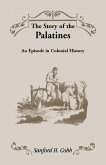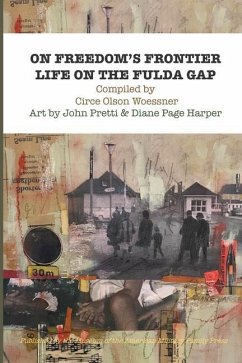"Cobb's book set forth with force and clearness the place in history which rightly belongs to these German pioneers in the new world." -NY Times, Jan. 1, 1898 "A close student of the Palatines in New York, Cobb expresses a high estimate of them." -The Germans In The Making Of America (2013) "From the Palatinate...southwest Germany...driven out by religious persecution...British referred to these people as Palatines." -The Palatine Wreck (2017) ""Cobb's book set forth with force and clearness the place in history which rightly belongs to these German pioneers in the new world." -NY Times, Jan. 1, 1898 "Dr. Cobb...was a man of strong mentality, an author of obvious talent, both in research and writing...author of two valuable and able historical works." -The Wilkes-Barre Record, May 12, 1910 What caused Germans from the Palatinates region of Germany to first flee to America in the early 1700s, and why did they flee from New York for Pennsylvania? In 1897, Rev Sanford Hoadley Cobb (1838 -1910) published "The Story of the Palatines: An Episode in Colonial History," answering these questions and more regarding this unique group of early American pioneers. The German Palatines were early 18th century emigrants from the Middle Rhine region of the Holy Roman Empire, including a minority from the Palatinate which gave its name to the entire group. Towards the end of the 17th century and into the 18th, the wealthy region was repeatedly invaded by French troops, which resulted in continuous military requisitions, widespread devastation and famine. The "Poor Palatines" were some 13,000 Germans who migrated to England between May and November 1709. The English tried to settle them in England, Ireland and the Colonies. The English transported nearly 3,000 German Palatines in ten ships to New York in 1710. Cobb writes: "That which by most people, who know anything about the Palatine Immigration, is supposed to be alluded to in any reference to that people, is merely the incoming of the large company which landed in New York in the early summer of 1710. They made the largest body of emigrants coming at one time to this country in the colonial period."
Hinweis: Dieser Artikel kann nur an eine deutsche Lieferadresse ausgeliefert werden.
Hinweis: Dieser Artikel kann nur an eine deutsche Lieferadresse ausgeliefert werden.







